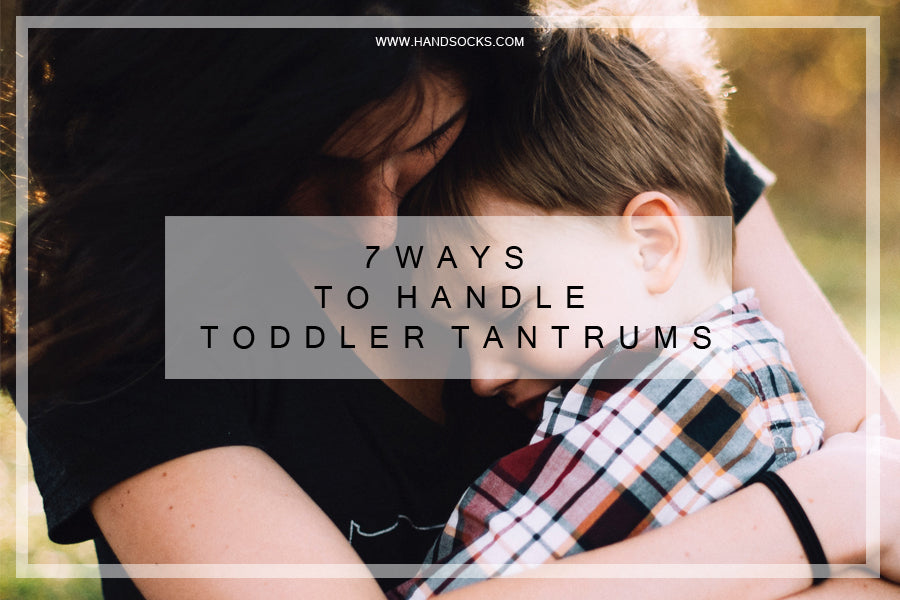Your bag is empty
Already have an account? Log in to check out faster.
Already have an account? Log in to check out faster.


You are in the grocery store buying your weekly supplies when your 3-year old started to point on a jar of candy and becomes furious when you say no. You tried to condone your child, but the crying is getting louder and other shoppers are now looking at you. AH, ha. It could be anything in the store really. Depending on the mood of the day your sweet baby turns into WOWZA.
Perhaps, you are in a restaurant for a celebration and your child starts shouting and crying because she wants to get out of the chair and play. Sound familiar? Or if you are like my husband and I you end up at Outback with one child under the table and one trying to crawl on top. We don't win parents of the year awards out in restaurants :) ... which is why we don't go much with our littles.
Tantrums are typical for toddlers, in fact, it is a part of child development. According to a study conducted by the Psychologist, James Green of the University of Connecticut. The study reported that: Tantrums display a pattern and rhythm. First is yelling and screaming. The second involves physical actions. And the third includes crying and whining. When understood, parents can tell the distinction of common tantrums and those caution signals of an underlying disorder.
Perhaps, tantrums are normal, but it doesn’t mean that you cannot do anything about it. So before losing your cool and starting your own meltdown (me?! never!) , check out these 7 ways on how to handle toddler tantrums.
Rule number 1 is to relax. Keep your cool. You are not a bad mama. Even though you are steaming on the inside your kid is not naughty.
Tired? Hungry? Bored? Hurt? It won’t hurt to listen to your child and ask what he or she wanted to get or happen. Find out what is stressing or frustrating him and calmly discuss. It may take a few minutes. I've tried to do this with my kid shouting over me. Sometimes holding and rocking helps.
What if your kid wants to eat food that he or she is allergic? Or she wanted a toy that is not hers? In this case, you can give them alternatives, like a healthier food that is equally tasteful or maybe giving her another toy. Distraction can also be a beautiful thing. Sometimes I start talking about things totally non-related or singing or being silly and they totally forget what they were mad about.
If calm, talking and distraction is not successful and your child already abandoned all logic, try to wait and let him or her cry it out. Sometimes a good cry feels good to get out.
5. Hugs and Kisses!
Hug her, kiss her and rub her back. This will help her to settle down as you acknowledge her frustrations and confirm your love for her.
This is important. As early as 3 years old it is important that a parent will discipline their children – of course with grace and love. Explain to your child calmly what happened during their tantrum and how can they show their frustration aside from shouting and crying. Teach her on how to better communicate and the importance of waiting. You can give her examples or some moral short stories.
Filter your words when you are speaking to your child because they are in the foundation stage. Words like bad boy, bad girl, naughty kid, disobedient child may stick to them and can result in bad behavior and low self-esteem in the future.
Try to avoid telling your son that he is a bad boy, instead explain to him that what he did is bad. The difference is that his action or mistakes is bad and not him. Be clear why his action is inappropriate and encourage good behavior. Tell them good behavior makes you "proud and happy".
Tantrums can be draining for any parent, but hopefully these help.
How about you? Do you have any hacks or ideas on how to manage toddler tantrums?
Comment your answers below and help the rest of us out :)
XO,
Casey